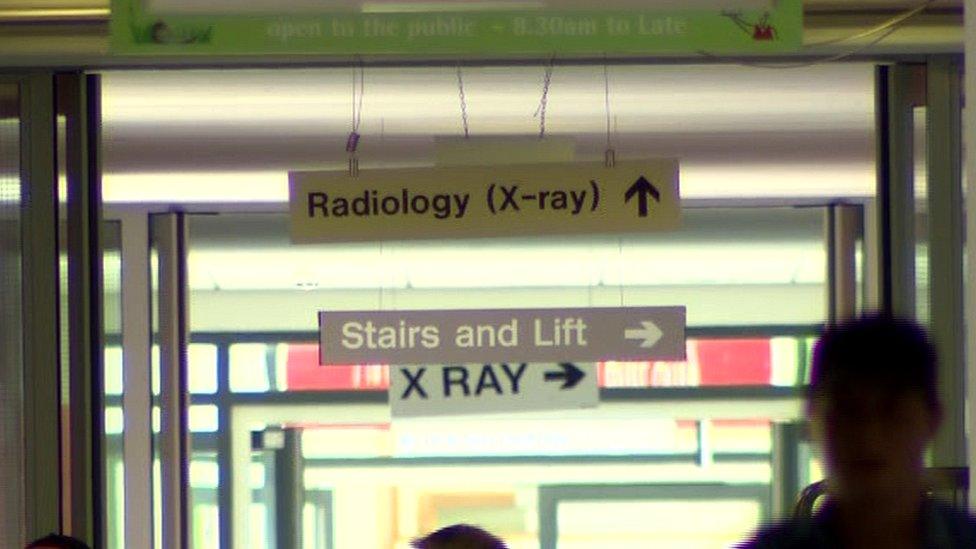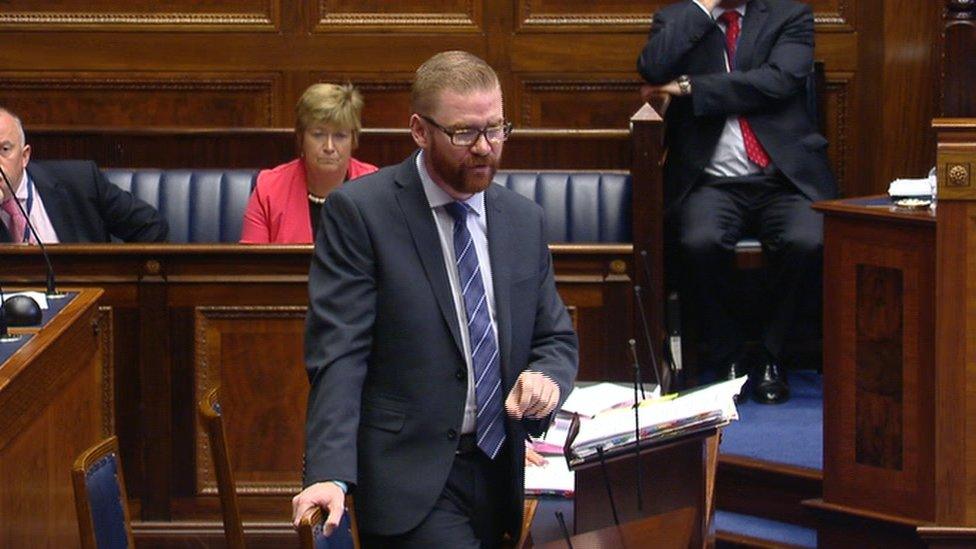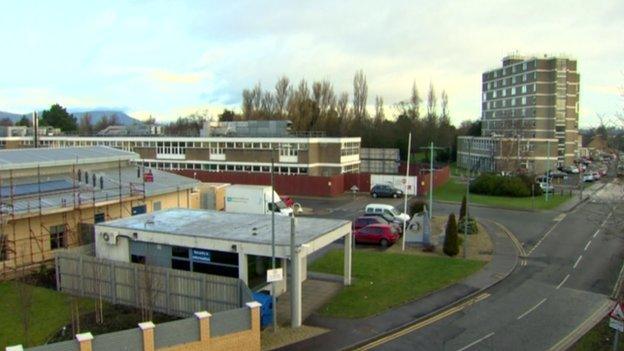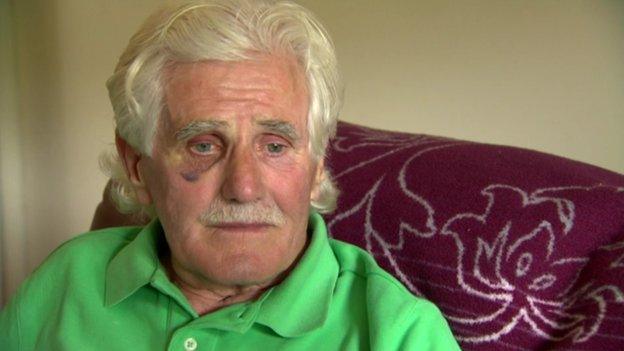Hospital waiting times: 'Heads would roll' if NI figures were seen in England
- Published
Nigel Edwards said heads would roll in England if hospital waiting lists were as long as those in Northern Ireland.
"Heads would roll" in England if hospital waiting list figures were on the same scale as those currently seen in Northern Ireland, a leading health expert has claimed.
Nigel Edwards, the chief executive of the Nuffield Trust health body, described the figures as "serious".
The BBC revealed in July that some patients were waiting up to 18 months for hospital appointments.
Mr Edwards said immediate action was needed reduce waiting list times.
The Nuffield Trust, external is a leading national body that aims to improve health care in the UK.
The Democratic Unionist Party's Simon Hamilton, who held the health brief until the recent resignation of DUP ministers at Stormont, has blamed the current health service crisis on his political opponents.
"Our ability to deliver services in the here and now has not been helped by the fact that over the last couple of years, we have been squandering tens and tens and tens of millions of pounds because Sinn Féin and the SDLP have refused to move forward on welfare reform," he added.
"That is money that could be going into the health service, that is money that could be taking people off waiting lists and helping vulnerable people across Northern Ireland."
Mr Edwards is an influential figure in health circles in England, especially among those who consult and advise the government.
Removed
Speaking exclusively to the BBC, he said: "These figures represent a very worrying situation in Northern Ireland.
"[They] compare very badly with the figures in England, where, if we saw this level of waiting, action would be taken.

Northern Ireland's waiting list crisis requires immediate action Mr Edwards said
"In fact, I suspect we would find chief executives being removed and urgent action being taken to bring in additional capacity to try and get the numbers down.
"Heads would probably roll in some cases for this level of waiting in some of England's hospitals."
Mr Edwards said the government had prioritised reducing waiting times and there had been a focus on reaching a target of 18 weeks.
"In England, let's be clear about the 18-week target - that's 18 weeks from referral to treatment, not just 18 weeks to be seen."
Control
The Northern Ireland waiting list situation requires immediate action, either within the health service or via the independent sector, he said.
"The big thing is to clear the backlog.
"The two traditional ways are that you pay the existing consultants money to work Saturdays and Sundays and bring in extra staff, or you bring in the private sector.
"Sometimes we have surgeons and nurses from outside the area and the reason why that's been done in a number of countries is that the people who control the waiting lists tend to end up benefiting financially from all the private work that is then done.
BBC Newsline's Kevin Sharkey reports on the political reaction to criticism of waiting list figures in Northern Ireland.
"I think there is some sort of concern that there are perverse incentives for paying people large amounts of money because they have access to the waiting lists."
Mr Edwards said case studies reported by the BBC showed that health chiefs in Northern Ireland had to move quickly to address the worsening waiting list figures.
Decades
He said that like elsewhere in the UK, Northern Ireland was struggling with finite resources.
But he added that vital decisions about reducing hospitals had been avoided for almost 30 years.
"The people who lead the system need to step up and take some bold decisions, both to clear the backlog and to deal with some of the structural issues and the shape of Northern Ireland's healthcare system.
"And there are some big decisions that really need to be taken, decisions that have been ducked for nearly three decades."

Northern Ireland is currently without a health minister after the resignation of the DUP's Simon Hamilton
Mr Hamilton resigned as health minister as part of his party's protest at the ongoing political crisis at Stormont.
Mr Edwards said that without a health minister permanently in place some big decisions, like reshaping the health service, were not being taken.
He said he had witnessed a similar situation in countries with unstable coalitions, but none of those had a health crisis like the one currently unfolding in Northern Ireland.
A spokesman for the Department of Health said it was "disappointing" to see increases in the number of people facing waits.
Tight budgets "present significant challenges", the spokesman added, but work is going on between the health trusts and the Health and Social Care Board to "develop balanced financial plans for 2015/16".
"Maintaining the safety of services for patients and clients will remain a priority."

Have you been affected by issues covered in this story? Let us know about your experiences. Email haveyoursay@bbc.co.uk, external with your stories.
Please include a contact number if you are willing to speak to a BBC journalist. You can also contact us in the following ways:
WhatsApp: +44 7525 900971
Send pictures/video to yourpics@bbc.co.uk, external
Tweet: @BBC_HaveYourSay, external
- Published22 July 2015

- Published22 July 2015
